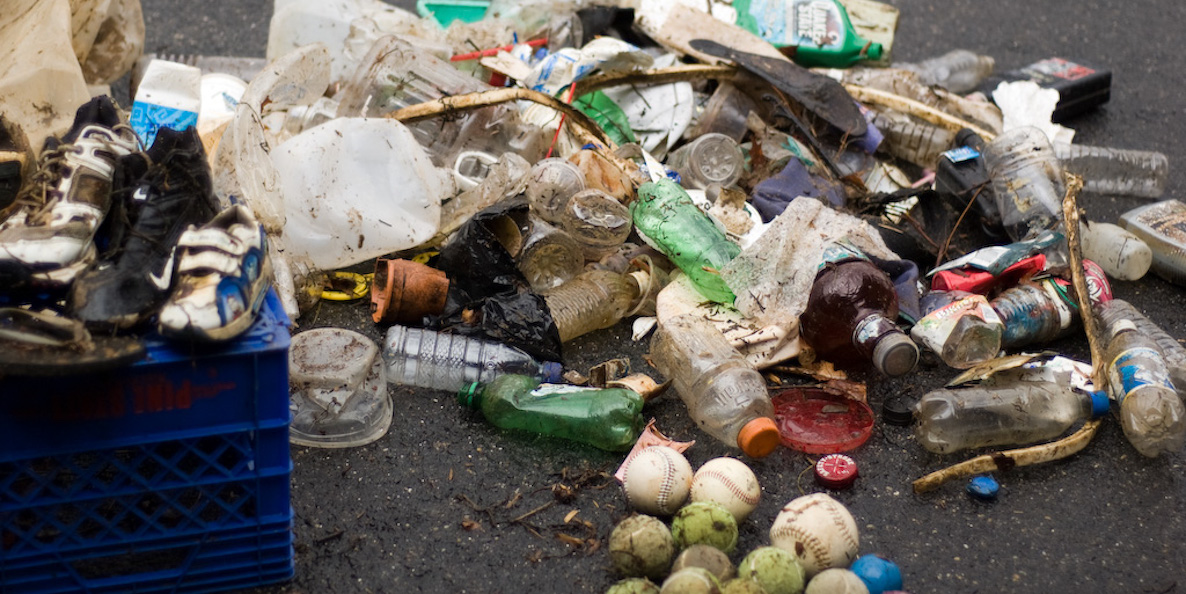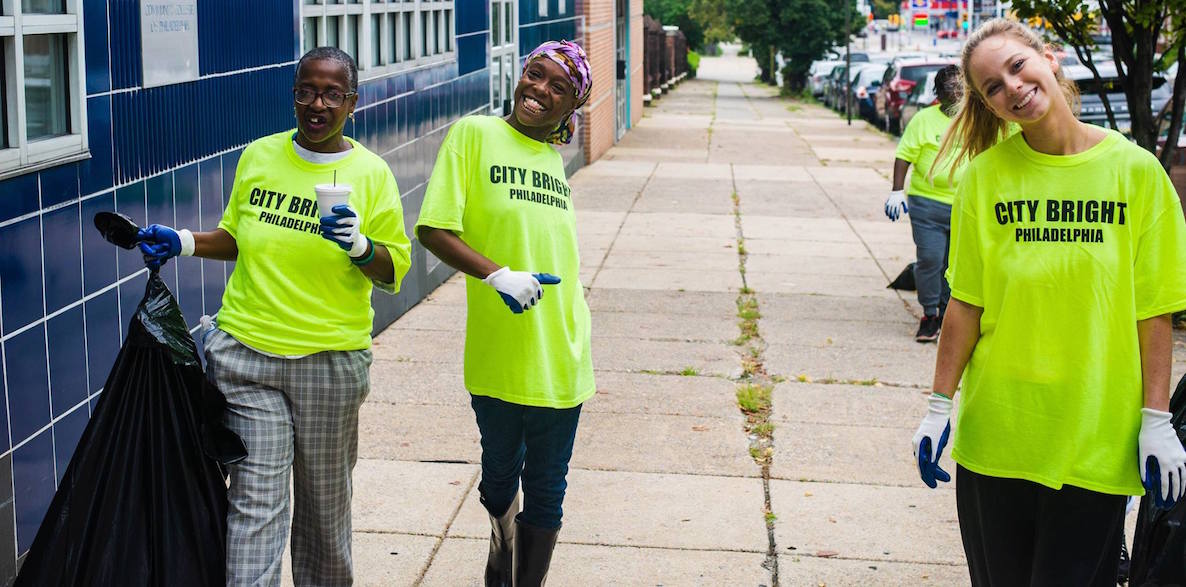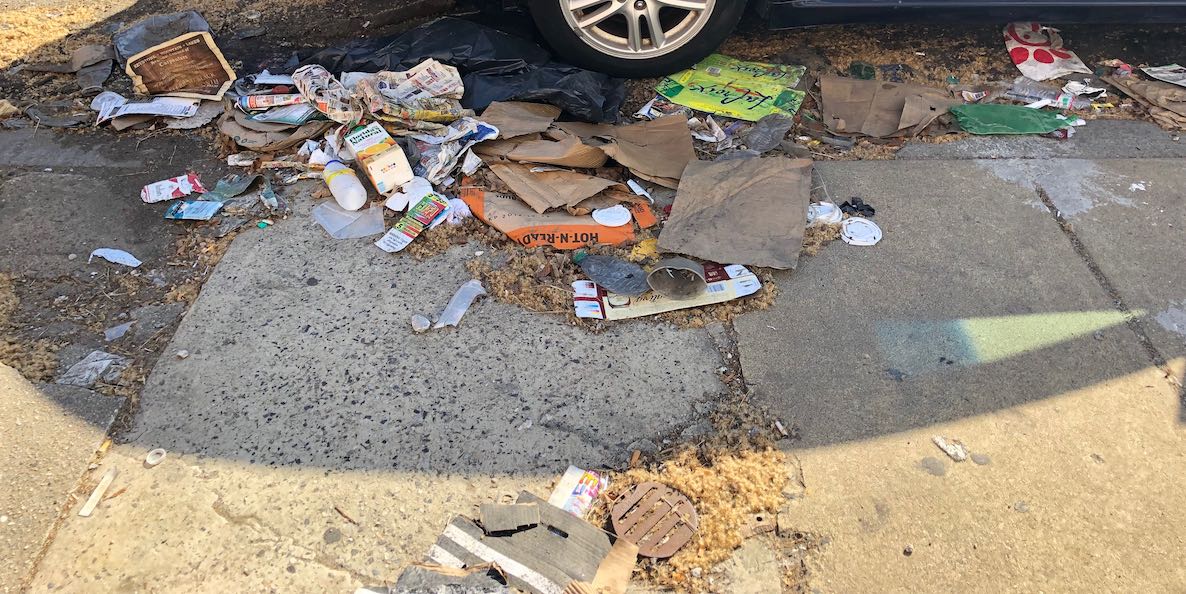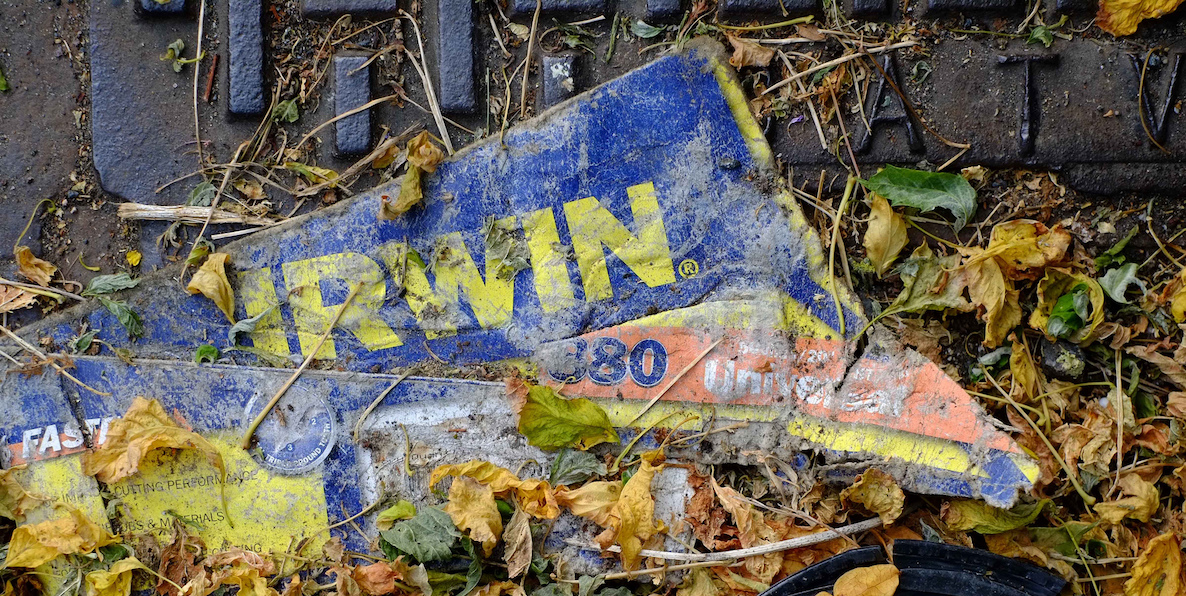You may have heard by now that the City has launched a pilot, in six neighborhoods, to sweep the streets clean of accumulated litter, once a week after trash day. And you may have hoped—as Mayor Kenney promised in his first Mayoral campaign—that it was a return to the weekly street cleaning we had citywide before the recession-fueled cutbacks.
You would be wrong. Instead, we have what the Mayor presumably thinks is a more politically-palatable two-step process: First, workers with gas-powered backpack leaf-blowers and brooms push trash from sidewalks and curbs into the street. Then, a truck sweeps it up. It takes seven people to do this work—instead of just the two on the truck; and it will cost $425,000 for just six months, in just six neighborhoods—as opposed to an estimated $3 to $5 million for the whole city with just trucks.
But it has one “advantage” that the trucks alone do not: It does not require the moving of parked cars. Moving cars is only “recommended.”
Is this progress? To see much of the media coverage of it, you might think so. Philly.com talked about how the city might be “on the road to sweeping its Filthadelphia nickname under the rug.” PhillyMag hailed Kenney as having “long advocated for citywide sweeping” (which is true only if promising during one campaign and then launching a pilot in another can be considered long advocating).
PhillyMag also offered us video of what this pilot process actually looks like. Hint: It’s dusty. Very dusty.
Video via Philly Mag
That’s because of those gas-powered blowers, the same sort of machines that have been banned in Washington, D.C. and other communities, and that researchers have said are pretty terrible for the environment. The most-cited study is one from Edmunds car research company, which found that using a twin-engine leaf blower for 30 minutes produced more hydrocarbon emissions than a cross-country trip in a 6,200-pound 2011 Ford F-150 SVT Raptor. If that sounds bad, it’s because it is.
Philly air is already one of the most polluted in the country, especially in poorer neighborhoods, which also tend to be near polluting industrial facilities. This helps explain why Philly is ranked 4th out of a list of 20 “asthma capitals”—something that keeps children out of school and adults out of work. Noise pollution has also been found to be harmful, especially to children. This project seems likely to aggravate the pollution, at least while the blowers are blowing.
Using a twin-engine leaf blower for 30 minutes produced more hydrocarbon emissions than a cross-country trip in a 6,200-pound 2011 Ford F-150 SVT Raptor. If that sounds bad, it’s because it is.
The City has said it will look at the effects of the pilot in six months, including whether blowing the litter out in to the street and up into the air made people sick—something Streets Commissioner Carlton Williams repeated to City Council a few days after the launch during his department’s budget hearing. And, there is one other advantage to how this is designed: It collects trash from sidewalks as well as the street, something particularly acute on the day after trash day.
![]()
But it begs the same questions as always with litter: Why are we so damn messy? And why can’t we be like every other city in America, and just send the trucks to clean it up already? Shortly after Mayor Kenney took office, he established a Zero Waste and Litter Cabinet, which launched the Litter Index (you can look up your neighborhood here); studied if more trash receptacles at parks cut down on litter (um, yes); installed city trash cans outside every house on some of the worst-offending streets (unclear if it helped); and launched a few other neighborhood-specific programs. They are piecemeal projects, targeted to the needs of individual neighborhoods. Meanwhile, every neighborhood needs its streets swept—but most are still waiting.
At the Streets Department budget hearing, City Council President Darrell Clarke turned the tables on Philadelphians: “You talked about this issue of environmentally sound ways of moving trash off the street,” Clarke said, according to Plan Philly. “I think the most environmentally sound way of doing that is for people to stop throwing trash on the street. At the end of the day, people in this city need to stop being pigs.”
According to the City’s own residential survey, Philadelphians have declared that they care more about clean streets than we do about parking—which seems to indicate that even if Mayor Kenney is not ready to bring back the trucks, we are.
Clarke’s impolitic language aside, he is essentially right: Philadelphians need to do their part to take care of this problem. And, often, they do. In neighborhoods like Point Breeze and Queen Village, neighbors pay a nonprofit jobs skills program to bag the litter on the street, which the City then sends a truck to pick up; several business districts have followed Center City District’s lead and employ sidewalk sweepers; in Germantown, neighbors bought a truck(!) of their own to clean streets; a local dog owner has even imported the European “plogging,” encouraging walkers to pick up trash along with poop.
![]()
What’s more, according to the City’s own residential survey, Philadelphians have declared that we care more about clean streets than we do about parking—which seems to indicate that even if Mayor Kenney is not ready to bring back the trucks, we are.
How do other cities do it? Other big cities in America, and several smaller ones, have what we used to in Philly: At regular intervals from spring through fall, residents remove their cars and mechanical street cleaners travel various routes, washing and (basically) vacuuming up debris from streets and curbs along the way. New York City—no stranger to the politics of cars and parking—has 450 mechanical cleaning trucks, and also deploys city street sweepers with brooms and dustpans who cover 6,000 miles of sidewalks every day. They, too, have a cleanliness scorecard, with an appealing incentive: Neighborhoods that score over 90 percent cleanliness for two fiscal years in a row can request to reduce the frequency of city street cleaning—which also reduces the need to move cars. That means not just clean streets but residents in the habit of keeping streets clean—something (as Clarke noted) that Philadelphians could learn from.
![]()
Is good old-fashioned mechanized street cleaning the answer to all our litter problems? Far from it. But could a City-led effort to clean our roads and make us all responsible for our part help forge a path towards a healthier, prettier, cleaner city for all of us? It’s not unreasonable to think so. And the benefits could be myriad.
After all, as Douglas Marsiglia, then chief of cleaning operations for New York City, told City Lab in 2013: “I know a lot of people don’t like to move their car and be inconvenienced, but it’s keeping the neighborhoods clean. Nobody wants to live in a dirty neighborhood. Nobody wants to do business in a dirty neighborhood or come visit a dirty neighborhood.”
Photo via Roxanne Patel Shepelavy






